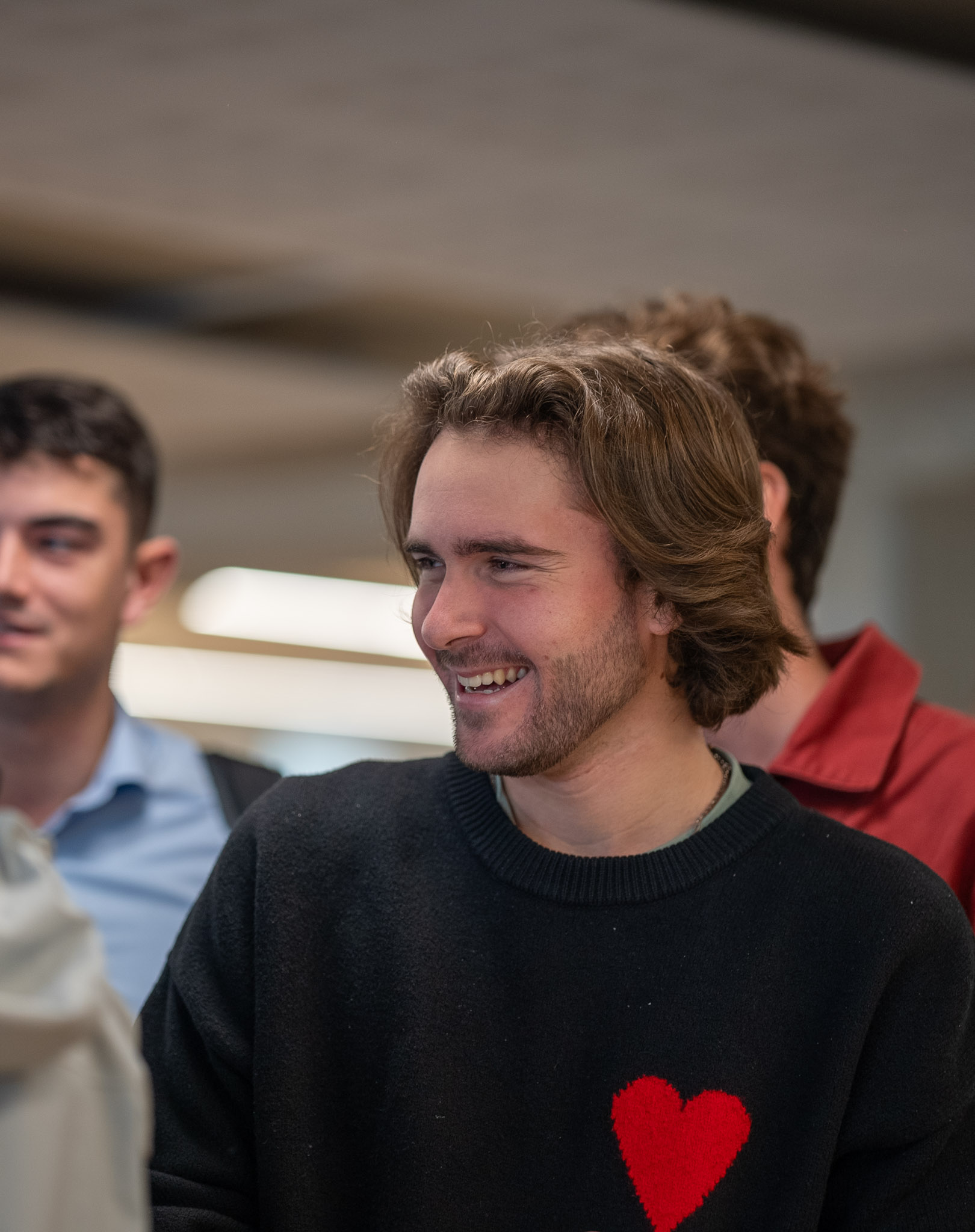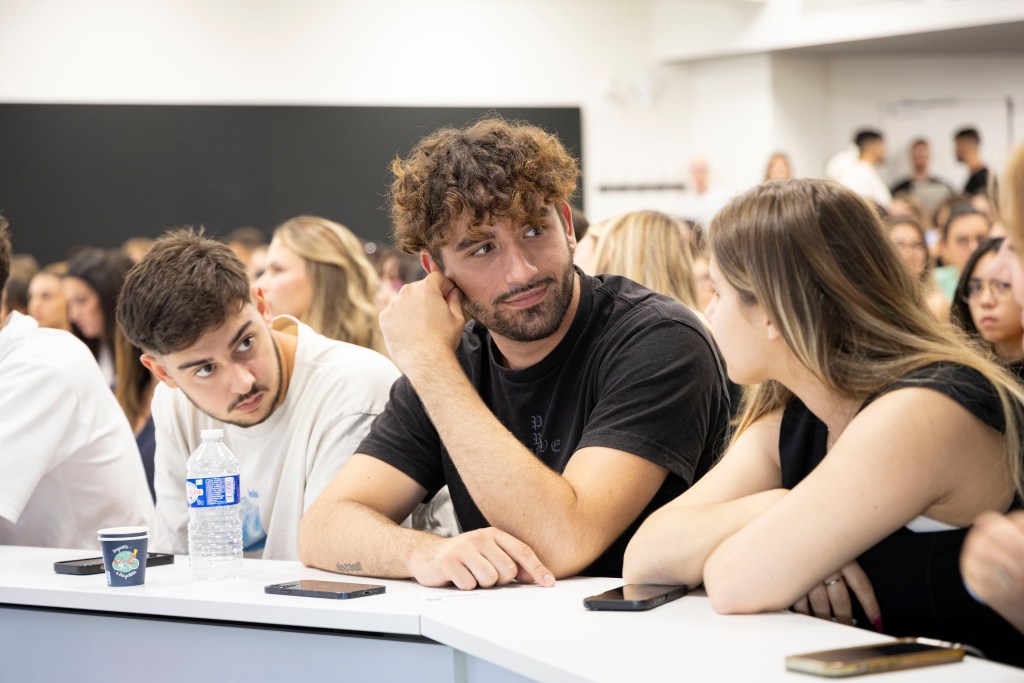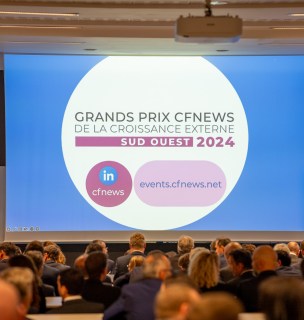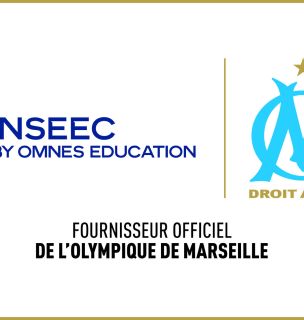Why choose the MSc in Hospitality Management, Tourism & Customer Experience Marketing ?
More than 1.2 billion tourists in the world today, with projections of 1.8 billion by 2030! In France, the tourism industry alone accounts for nearly 6.5% of GDP and an annual turnover of 25.6 billion euros.
While this growth is confirmed, the industry is nonetheless faced with the expectations and demands of a clientele whose lifestyles and uses are constantly changing. Thus, the hotel industry has no choice but to invest massively in the “customer experience” by proposing more and more services as well as an offer that makes the difference, that is connected, original, atypical and unique. Unforgettable customer experience, digital challenges, new uses, sustainable development, innovation, differentiation, new business models, are all factors that are accelerating the transformation of this fast-moving industry.
This sector of activity requires high-level executives with specific marketing and management skills.
The MSc Hospitality Management, Tourism Marketing and Customer Experience offers courses in French and English on certain modules. The programme covers all the disciplines of marketing, communication, sales, HR and management, with an emphasis on the new digital challenges and levers that are essential to the successful management of a hotel or tourism structure.
Pierre-François BREZES, Program Director – Paris Campus
Training objectives
The objectives in terms of skills are to be able to :
- Develop a marketing strategy focused on the customer experience (“Customer centric”)
- Lead the operational implementation of the customer experience strategy
- Design and deploy the levers of loyalty in the service of performance
- Manage the teams and federate around the concept of customer experience in agile mode
- Coordinate and deploy the customer experience marketing strategy in the hospitality management sector.
Discover our MSc in Hospitality Management, Tourism & Customer Experience Marketing

A degree in 1 or 2 years to become an expert in tourism marketing and hospitality management
- Hourly volume 1st year of MSc: 441 hours
- Hourly volume 2nd year of MSc: 441 hours
How to apply for the MSc Hospitality Management, Tourism Marketing and Customer Experience at INSEEC?
The required prerequisites
The conditions for accessing the certification system (excluding VAE) are :
- For an entry in the 1st year of the course (MSc 1): Have validated 180 ECTS (level 6, Bachelor’s degree or equivalent) in the field of marketing, commerce, management or communication. He must have a professional level of English for the English-speaking program.
- For an entry into the 2nd year of the course (MSc 2): Have validated 240 ECTS (level 6, Master 1 or equivalent) in the field of marketing. He must have a professional level of English for the English-speaking program.
The Executive training is subject to specific prerequisites with consideration of professional experience.
Would you like to learn more about the MSc in Hospitality Management, Tourism & Customer Experience Marketing? Register for an Information Meeting!
Would you like to know more about the admission requirements for our training in MSc Hospitality Management, Tourism & Customer Experience Marketing?
What are the courses of the Master of Science Hospitality Management, Tourism & Customer Experience Marketing ?
The courses presented below are given as an example, they may vary slightly depending on the teaching campus. The content of the courses is adapted each year to changes in the market and is updated before each start.
1st year courses
TRANSVERSAL & FUNDAMENTAL COURSES – 1ST YEAR
BUSINESS GAME
The business game is done using a management simulator. Groups of learners are responsible for managing a business in real time. All major functions of the business are covered. Learners will make decisions to maximize the profitability of the business.
BUDGET MANAGEMENT & DASHBOARDS
The objective is to acquire key skills in terms of budget management and reporting. Emphasis will be placed on the budget architecture, with the implementation of summary documents, project management control and its link to budget management, implementation and steering of dashboards.
FOREIGN LANGUAGE 2
A second foreign language is offered to improve the employability of learners.
NEGOTIATION
This seminar focuses on negotiation in an international context. It will be necessary to take into account the cultural dimension and define its impact in an international negotiation. Negotiation is centered on the sales process through role play.
SOFTWARE & DECISION SUPPORT TOOLS
This module aims to deepen the skills of computer learners to meet the demand of companies in terms of budget or business monitoring, project management, personnel management and communication: Excel, Word, PowerPoint, team work tools, business software. It aims to be efficient on office tools, quickly identify and correct errors, customize existing tools or create its own tools.
PROFESSIONAL TOOLS & METHODS
This module allows learners to improve their CV and posture through situations (professional simulation, speaking, etc.); practical and professionalizing workshops (CV, professional social networks, coaching)
CORPORATE STRATEGY & BUSINESS PLAN
This module allows, in a first step, to integrate the approach of the corporate strategy: from the analysis of customer needs, market structure to the dynamics of competitors to identify opportunities and threats of the environment. It also aims to learn the realization of a business plan or business plan: from the design of a costed project for the creation or development of a company.
SPECIALIZED COURSES
STRATEGY & CUSTOMER EXPERIENCE
This module enables mastering the design of a coherent and sustainable business strategy with a strong emphasis on customer experience (“customer-centric”).
MARKETING REMIX
Without getting into the operational of digital marketing techniques, but rather from a strategic point of view, we will see in this course how the digitalization of the world has impacted the marketing mix. On each element of this marketing mix, we will address the evolutions and good practices induced by new tools and consumer behaviors, including the growing importance of putting the customer at the heart of its strategy.
BUSINESS SKILLS
This module allows learners to immerse themselves in real or fictitious business cases and to train in marketing strategy, operational marketing, communication plan as well as peer-to-peer exchanges in order to progress.
TA PROMPT ENGINEERING
Introduction to the fundamentals of interaction with generative AI such as ChatGPT, DALL-E and other LLM models. Learn how to write and optimize effective prompts to fully exploit the potential of these tools in a variety of contexts, such as content creation, productivity and automation. This module also addresses the ethical issues, limitations and biases of AI in order to promote responsible use. Through practical exercises and real-life cases, this course provides a solid foundation to deepen the skills in generative artificial intelligence.
STRATEGIC & OPERATIONAL MARKETING
The fundamentals of marketing apply to tourism sectors, so this seminar is an opportunity to put theories into perspective in relation to the practices of companies in the sector. Many implementations are proposed in order to progress in the launch of a range or a new product, in the proposal of a collaboration or even in the elements of an optimal phygital distribution.
MARKET FOCUS
These masterclasses are an opportunity to bring together experts on emerging or cutting-edge topics in the tourism sector.
DIGITAL MARKETING & E-COMMERCE
Although digital marketing and e-commerce are now widely adopted by companies, it remains the case that we must be able to maintain a high level of demand and a «memorable» experience like the physical experience at a point of sale. How to (re)create this online experience? Which integrated performance indicators? What tools and techniques adopted on the CRM? What about social commerce? These questions will be addressed during this seminar.
MARKETING & EVENT COMMUNICATION
The control of the strategy and actions as well as marketing and communication related to events is imperative. This module therefore enables learners to become real event project managers with a sustainable perspective.
MARKETING D’INFLUENCE & SOCIAL MEDIA STRATEGY
This module focuses on the application of influence strategies and social media specifically tailored to the luxury and fashion sectors. It explores trends, key players and techniques to develop effective campaigns and preserve the brand image.
CONSUMER BEHAVIOR
The consumer behaviour applied to the tourism sector allows a better study of a market, a better definition of its target and therefore the most relevant strategy. The social, cultural and maturity characteristics of consumers are studied as well as the study of consumer behaviour at a point of sale or in a specific consumption context.
MANAGEMENT TEAM & LEADERSHIP
The management of a sales team in the tourism sector is essential for a future manager. This seminar brings the fundamentals of integration to the motivation of employees and the specificities specific to tourism. Role-playing games allow immersion as close to reality.
EXAMS & SUPPORT
WRITTEN EXAMS
Written Exams + Defense
2nd year courses
MARKETING STRATEGIES & CUSTOMER EXPERIENCE – 2ND YEAR
CONSUMER BEHAVIOR & CUSTOMER EXPERIENCE (LEVEL 2)
This course will enable learners to understand the specifics of consumer behavior in the hotel industry and master the keys to a successful customer experience. They will be able to analyze customer needs, create memorable experiences, and enhance hotel brand performance.
MARKETING & MANAGEMENT STRATEGIES
Mastery of key marketing and management tools and concepts applied to the tourism and hospitality sector. Learners will be able to develop effective marketing strategies, manage teams, and drive brand performance.
MARKETING & INNOVATION
This module will cover the skills needed to develop and launch innovative products in the tourism and hospitality sector. Ultimately, learners will be able to understand market trends, create disruptive business models, and master digital marketing tools.
APPLIED RESEARCH THESIS
Private jets, personalized itineraries, and prestigious destinations: how innovation is transforming the sophisticated world of bespoke tourism? A focus on the development of luxury tourism.
MANAGING CUSTOMER EXPERIENCE
DIGITAL STRATEGY & E-COMMERCE
- New communication levers: Internet (web 2.0 and 3.0, social media, emailing, podcasting).
- E-reputation and brand protection on the Internet.
- This module enables learners to develop an effective e-commerce strategy for tourism businesses.
OPERATIONAL MANAGEMENT OF HOSPITALITY
This module focuses on the marketing and sales strategies of hotels, from 2-star establishments to large international palaces. The structure and organization of hotel chains, the management of hotel staff, and the managerial specificities of the hospitality industry will be analyzed.
MARKETING, COMMUNICATION & PR
- Understand the challenges by analyzing the fundamentals of marketing, communication, and public relations in the tourism and hospitality sector.
- Master the tools by implementing digital techniques, public relations, and storytelling to build effective communication.
- Develop a comprehensive strategy by creating a strong brand image, managing reputation, and building lasting relationships with the media and influencers.
TOUR OPERATOR
- Understand the tourism industry and its challenges.
- Collaborate with sector stakeholders to offer comprehensive travel packages to tourists.
- Understand the difficulties in the sector related to online competition, consumer trends, and environmental constraints.
LOYALTY & PERFORMANCE
CRM MARKETING
- A second foreign language is offered to enhance the employability of learners.
BRAND MANAGEMENT & LEGAL ISSUES
- Develop a bold and creative marketing strategy while adhering to specific legal requirements in the tourism and hospitality sector to ensure brand sustainability and customer trust.
FINANCIAL MANAGEMENT & STRATEGIC PLANNING
From performance analysis to strategic vision, this module enables you to manage the profitability of the company, build a long-term strategy, and make the right decisions to ensure its sustainable growth in the tourism and hospitality sector.
ACTION LAB
Through a flagship project, learners will apply acquired skills in practical workshops tailored to the tourism and hospitality sector.
TEAM MANAGEMENT & AGILITY
TEAM & TALENT MANAGEMENT
- Attracting, retaining, and developing talent is crucial for the success of a luxury brand.
- It involves cultivating a culture of inclusion and diversity, offering a stimulating career path, and creating a positive and multicultural work environment.
SECOND FOREIGN LANGUAGE
A second foreign language is offered to enhance the employability of learners.
SUSTAINABLE DEVELOPMENT & GREEN MANAGEMENT
The course provides specialized knowledge and essential tools for supporting the transition. It also enables learners to become key players in a company or local administration for the transformation of the socio-economic world in pursuit of sustainable development goals.
NEGOTIATION
Learners will be able to conduct complex and sensitive negotiations in the international context of luxury or fashion, while preserving the brand’s interests and image.
MASTER CLASS
- Inspiring meetings with professionals, an in-depth exploration of tourism and hospitality topics, and an environment conducive to networking and personal development.
CUSTOMER EXPERIENCE COORDINATION – HOSPITALITY MANAGEMENT
EVENT PROJECT MANAGEMENT
- Typology of international events, logistics, costs, and economics of trade shows.
- Organization, marketing, and customer relations.
- Organizing a conference or trade show: seeking funding and partners, logistical organization, welcoming delegates, costs, and promotional methods.
- Festivals: an economic and cultural asset for regions; tourism and festivals; promotion of festivals in France and abroad.
SUSTAINABLE TOURISM & RESPONSIBLE MARKETING
The learner will discover how to develop sustainable tourism, which is based on various principles such as eco-friendly modes of transportation, production, and consumption, and closely involves local populations in the tourism development project and its socio-economic benefits.
PRICE AND PROFITABILITY MANAGEMENT
- Understand the implementation of pricing strategies, particularly in relation to competition.
- Compare the strategies of low-cost (hotels and transportation) vs. premium strategies, mass tourism vs. elitist tourism.
- Enable learners to understand the impact of price on competition, revenue, and ROI, respond to competitors’ price changes, and initiate price reductions or increases.
EXAMS AND SUPPORT
WRITTEN EXAMS & THESIS DEFENSE
What are the beginnings and study schedules ?
There are two openings per year, in February/March and September/October. To check the opening of each intake, contact the admissions department directly.
The pace of the course may differ from campus to campus and depending on whether the course is carried out under an internship agreement (initial) or a professionalization/apprenticeship contract (continuing).
The work-study contract must be signed for a period of 12 months (MSc2) or 24 months (MSc1 + MSc2).
To find out the duration of the contract for our Spring intake, please contact the Admissions Department of the campus that interests you.

What are the career opportunities after a MSc in Hospitality Management, Tourism & Customer Experience Marketing ?
- Chief Customer Officer
- Chief Experience Officer
- Marketing Director
- Marketing Manager
- Customer Relationship Manager
- Wine Tourism Project Director
To consult the detailed business sheets by specialization.
What business skills are developed ?
Professional certification allows the preparation of the following blocks of skills
- Develop a marketing strategy focused on the customer experience (“Customer centric”)
- Lead the operational implementation of the customer experience strategy
- Design and deploy the levers of loyalty in the service of performance
- Manage the teams and federate around the concept of customer experience in agile mode
To these common blocks of skills, the following optional sectoral block is added :
- Coordinate and deploy the customer experience marketing strategy in the hospitality management sector
Description of the methods for obtaining certification by capitalization of skill blocks and/or by correspondence
Certification is obtained by :
- The validation of four blocks of skills common to all pathways as well as a specialization block based on the candidate’s path (obtaining a grade equal or greater than 10/20 for each block of skills)
- The completion of a corporate period of at least 132 days in the second year of the course (MSc 2)
Professional certification
Professional certification of “Customer Experience Marketing Manager” level 7 (EU), NSF code 312, delivered by INSEEC MSc (CEE-SO, CEE-RA, CEE-OUEST, CEE-M, CEFAS, MBA INSTITUTE), registered under number 38598 in the RNCP (National Directory of Professional Certifications) by decision of the Director General of France Compétences of February 9, 2024.
Certification is delivered by capitalization of all skill blocks. Each skill in a block must be confirmed to obtain the skill block. Partial validation of a block is not possible. It is also accessible through the Validation of Acquired Experience.
Find the skill blocks associated with this RNCP title by clicking here.
What are the teaching methods ?
Teaching methods
- Lectures and interactive courses
- Situational exercises through collective or/and individual case studies carried out by the students
- Conferences, seminars and educational visits
Evaluation methods
- Individual or/and group case studies
- Individual or/and group oral presentations
- Individual or/and group files
- Applied research dissertation with oral presentation
Methods and tools
- The evaluation methods are face-to-face, in the form of continuous assessment or final exams in the form of mid-term exams.
What are the 2025/2026 tuition fees to join the Hospitality Management, Tourism Marketing & Customer Experience training ?
FALL INTAKE – 2025
Initial training:
- MSc1 : €12,190
- MSc2 : €13,650
Apprenticeship (sandwich course):
- 24 months : €24,450 before tax
- MSc2 : €14,290 before tax
International students pack
Mandatory fee of €700 for exclusive support services for international students living outside the European Union.
SPRING INTAKE – 2026
Initial training:
- MSc1 : €12,190
- MSc2 : €13,650
Apprenticeship (sandwich course):
- 24 months : €24,450 before tax
- MSc2 : €14,290 before tax
International students pack
Mandatory fee of €700 for exclusive support services for international students living outside the European Union.
VAE/VAP
- VAE: €4,800 before tax
- VAP: €850 before tax
International students pack
Mandatory fee for exclusive support services for international students living outside the European Union.
- Fall intake (2025) – September/October: €700
- Spring intake (2026) – February/March: €700
Application fee
The application fee is €80.
What kind of financial aid is available ?
INSEEC offers several financial aid schemes:
- The alternating rhythm, in internship or work-study contract
- The right to training via the CPF
- Banking partnerships
the key figures for RNCP n°34806 "Manager of marketing and commercial strategy"
94%
National success rate
Promo 2023
96%
Presentation rate
Promo 2023
87%
Overall insertion rate
Promo 2022
74%
6-month satisfaction rate
Promo 2022
What is the Disability policy in our school ?
The OMNES Education Group pays particular attention to the societal environment, including the disability dimension. Indeed, we believe that students with disabilities should not have any problems in pursuing their studies and starting a professional career. We accompany them to facilitate their access to the premises, offer them personalized advice as well as adapted accommodations throughout their school career.
Accessibility of premises: all our campuses are accessible to people with disabilities.
To learn more about INSEEC’s disability policy, click here.
- Bordeaux : Maxime DOUENS – mdouens@inseec.com
- Lyon : Anissa GASMI – agasmi@inseec.com
- Rennes : Laura LE CALVEZ – llecalvez@omneseducation.com
- Paris : Farid HAMAD – fhamad@inseec.com
- Chambéry : Marianne FERLAY – mferlay@inseec-edu.com
- Marseille : Océane VALOTTI – ovalotti@omneseducation.com
- Toulouse : Amanda MARNEIX – amarneix@omneseducation.com
The key numbers for the RNCP No. 34806 "Marketing and Commercial Strategy Manager"
94%
Overall satisfaction with training – Class of 2023
96%
Success rate – Class of 2023
<strong>87%</strong>
Overall employment rate
Class of 2022
<strong>74%</strong>
Satisfaction rate at 6 months
Class of 2022
News

June 2024
INSEEC hosted the CFNews Grands Prix de la Croissance Externe Sud Ouest for the second year running
Read more





